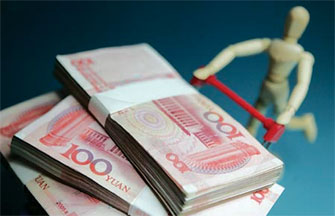Opinion :
Asia can learn from Europe's mistakes
A Chinese proverb tells us that it is wise to learn from your own
mistakes but wiser to learn from the mistakes of others. Asian leaders
should take this advice to heart as they juggle between policies for
social welfare and economic dynamism. By keeping a keen eye on Europe's
fiscal crises, they can avoid the worst of the Continent's
productivity-reducing excess.
At the same time, it would be a mistake for Asia to look to Europe
solely for lessons on which policies to avoid. Europe could not have
attained the highest quality of life in human history without doing some
things right, namely, trade and openness.
 In the decades since World War II, Europe has become the world's
centre of trade. In 2008, half of the world's trade in goods and
services involved the Continent. Two-thirds of this trade was within
Europe, helping small developing countries access big markets. In the decades since World War II, Europe has become the world's
centre of trade. In 2008, half of the world's trade in goods and
services involved the Continent. Two-thirds of this trade was within
Europe, helping small developing countries access big markets.
People in Asia worry about a 'middle-income trap'. Countries seem to
easily grow to levels of per-capita income of more than $1,000, but find
it difficult to reach and stay above high-income levels of more than
$10,000. In Europe, powered by vibrant trade and open financial flows, a
dozen emerging economies have attained high incomes since 1985, such as
Portugal in the 1990s and Poland in the 2000s.
European enterprise is also a success story. Between 1995 and 2009,
Western Europe's entrepreneurs created jobs faster than the US did, and
European economies exported more than the BRIC countries of Brazil,
Russia, India and China. Eastern Europe's productivity increased more
rapidly than East Asia's.
The main reason for this success is a freer business climate.
European nations figure at the top of most rankings of entrepreneurial
freedom and competitiveness. This is the result of reforms such as those
in Sweden in the 1990s and Germany a decade later that modernised labour
markets and welfare systems, and made it easier to start and shut down
companies. (Greece and Italy show what happens when structural reforms
are postponed).
Asia can learn much from Europe. Trade could be made easier in Asia
and the conditions for doing business could be improved by reducing red
tape. In this regard, Hong Kong, Singapore and South Korea have done
better than the best in Europe. Now China, India and Indonesia stand to
gain from doing the same.
The prosperity created by Europe's economic freedoms has allowed its
citizens to lead longer, healthier lives. But the way Europeans have
responded to growing wealth and longevity should serve as a cautionary
tale for Asia.
Over time, Europeans have come to rely on governments to protect them
from the rougher facets of private enterprise and to look after them in
old age. According to the World Bank's Golden Growth report on the
European economic model, Europe today spends more on social protection
than the rest of the world combined, amounting to 60% of global public
outlays on welfare.
The result has been a precipitous decline in work. In the 1950s,
Western Europeans worked one month a year more than Americans. Now the
situation is reversed. Today Americans work one month a year more than
the French and Swedes, and noticeably more than the Greeks and
Spaniards.
Courtesy: World Bank
|


